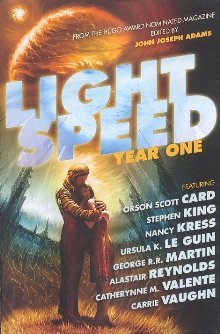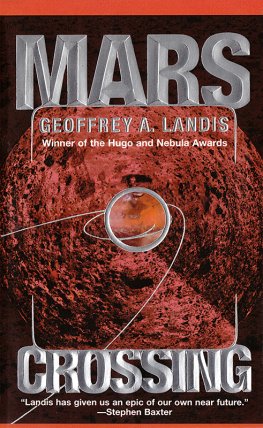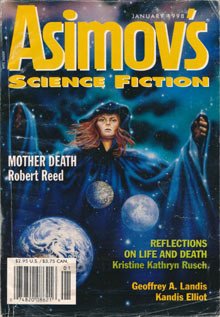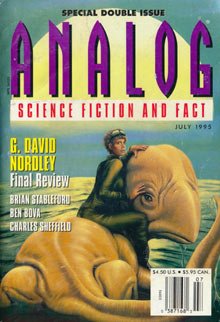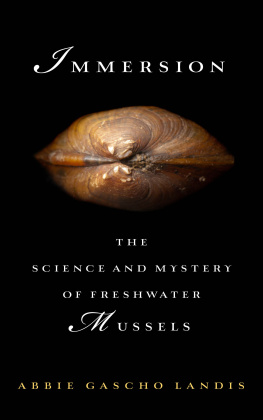Geoffrey Landis - The Long Chase
Here you can read online Geoffrey Landis - The Long Chase full text of the book (entire story) in english for free. Download pdf and epub, get meaning, cover and reviews about this ebook. year: 2011, publisher: Prime Books, genre: Science fiction. Description of the work, (preface) as well as reviews are available. Best literature library LitArk.com created for fans of good reading and offers a wide selection of genres:
Romance novel
Science fiction
Adventure
Detective
Science
History
Home and family
Prose
Art
Politics
Computer
Non-fiction
Religion
Business
Children
Humor
Choose a favorite category and find really read worthwhile books. Enjoy immersion in the world of imagination, feel the emotions of the characters or learn something new for yourself, make an fascinating discovery.
- Book:The Long Chase
- Author:
- Publisher:Prime Books
- Genre:
- Year:2011
- ISBN:978-1607013044
- Rating:3 / 5
- Favourites:Add to favourites
- Your mark:
- 60
- 1
- 2
- 3
- 4
- 5
The Long Chase: summary, description and annotation
We offer to read an annotation, description, summary or preface (depends on what the author of the book "The Long Chase" wrote himself). If you haven't found the necessary information about the book — write in the comments, we will try to find it.
The Long Chase — read online for free the complete book (whole text) full work
Below is the text of the book, divided by pages. System saving the place of the last page read, allows you to conveniently read the book "The Long Chase" online for free, without having to search again every time where you left off. Put a bookmark, and you can go to the page where you finished reading at any time.
Font size:
Interval:
Bookmark:
The Long Chase
by Geoffrey A. Landis
The war is over.
The survivors are being rounded up and converted.
In the inner solar system, those of my companions who survived the ferocity of the fighting have already been converted. But here at the very edge of the Oort Cloud, all things go slowly. It will be years, perhaps decades, before the victorious enemy come out here. But with the slow inevitability of gravity, like an outward wave of entropy, they will come.
Ten thousand of my fellow soldiers have elected to go doggo. Ragged prospectors and ice processors, they had been too independent to ever merge into an effective fighting unit. Now they shut themselves down to dumb rocks, electing to wake up to groggy consciousness for only a few seconds every hundred years. Patience, they counsel me; patience is life. If they can wait a thousand or ten thousand or a million years, with patience enough the enemy will eventually go away.
They are wrong.
The enemy, too, is patient. Here at the edge of the Kuiper, out past Pluto, space is vast, but still not vast enough. The enemy will search every grain of sand in the solar system. My companions will be found, and converted. If it takes ten thousand years, the enemy will search that long to do it.
I, too, have gone doggo, but my strategy is different. I have altered my orbit. I have a powerful ion-drive, and full tanks of propellant, but I use only the slightest tittle of a cold-gas thruster. I have a chemical kick-stage engine as well, but I do not use it either; using either one of them would signal my position to too many watchers. Among the cold comets, a tittle is enough.
I am falling into the sun.
It will take me two hundred and fifty years to fall, and for two hundred and forty nine years, I will be a dumb rock, a grain of sand with no thermal signature, no motion other than gravity, no sign of life.
Sleep.
2894, JuneAwake.
I check my systems. I have been a rock for nearly two hundred and fifty years.
The sun is huge now. If I were still a human, it would be the size of the fist on my outstretched arm. I am being watched now, I am sure, by a thousand lenses: amock, a tiny particle of interstellar ice? A fragment of debris from the war? A surviving enemy?
I love the cold and the dark and the emptiness; I have been gone so long from the inner solar system that the very sunlight is alien to me.
My systems check green. I expected no less: if I am nothing else, I am still a superbly engineered piece of space hardware. I come fully to life, and bring my ion engine up to thrust.
A thousand telescopes must be alerting their brains that I am alivebut it is too late! I am thrusting at a full throttle, five percent of a standard gravity, and I am thrusting inward, deep into the gravity well of the sun. My trajectory is plotted to skim almost the surface of the sun.
This trajectory has two objectives. First, so close to the sun I will be hard to see. My ion contrail will be washed out in the glare of a light a billion times brighter, and none of the thousand watching eyes will know my plans until it is too late to follow.
And second, by waiting until I am nearly skimming the sun and then firing my chemical engine deep inside the gravity well, I can make most efficient use of it. The gravity of the sun will amplify the efficiency of my propellant, magnify my speed. When I cross the orbit of Mercury outbound I will be over one percent of the speed of light and still accelerating.
I will discard the useless chemical rocket after I exhaust the little bit of impulse it can give me, of course. Chemical rockets have ferocious thrust but little staying power; useful in war but of limited value in an escape. But I will still have my ion engine, and I will have nearly full tanks.
Five percent of a standard gravity is a feeble thrust by the standards of chemical rocket engines, but chemical rockets exhaust their fuel far too quickly to be able to catch me. I can continue thrusting for years, for decades.
I pick a bright star, Procyon, for no reason whatever, and boresight it. Perhaps Procyon will have an asteroid belt. At least it must have dust, and perhaps comets. I dont need much: a grain of sand, a microscopic shard of ice.
From dust God made man. From the dust of a new star, from the detritus of creation, I can make worlds.
No one can catch me now. I will leave, and never return.
2897, MayI am chased.
It is impossible, stupid, unbelievable, inconceivable! I am being chased.
Why?
Can they not leave a single free mind unconverted? In three years I have reached fifteen percent of the speed of light, and it must be clear that I am leaving and never coming back. Can one unconverted brain be a threat to them? Must their group brain really have the forced cooperation of every lump of thinking matter in the solar system? Can they think that if even one free-thinking brain escapes, they have lost?
But the war is a matter of religion, not reason, and it may be that they indeed believe that even a single brain unconverted is a threat to them. For whatever reason, I am being chased.
The robot chasing me is, I am sure, little different than myself, a tiny brain, an ion engine, and a large set of tanks. They would have had no time to design something new; to have any chance of catching me they would have had to set the chaser on my tail immediately.
The brain, like mine, would consist of atomic spin states superimposed on a crystalline rock matrix. A device smaller than what, in the old days, we would call a grain of rice. Intelligent dust, a human had once said, back in the days before humans became irrelevant.
They only sent one chaser. They must be very confident.
Or short on resources.
It is a race, and a very tricky one. I can increase my thrust, use up fuel more quickly, to try to pull away, but if I do so, the specific impulse of my ion drive decreases, and as a result, I waste fuel and risk running out first. Or I can stretch my fuel, make my ion drive more efficient, but this will lower my thrust, and I will risk getting caught by the higher-thrust opponent behind me.
He is twenty billion kilometers behind me. I integrate his motion for a few days, and see that he is, in fact, out-accelerating me.
Time to jettison.
I drop everything I can. The identify-friend-or-foe encrypted-link gear I will never need again; it is discarded. It is a shame I cannot grind it up and feed it to my ion engines, but the ion engines are picky about what they eat. Two micro-manipulators I had planned to use to collect sand grains at my destination for fuel: gone.
My primary weapon has always been my bodylittle can survive an impact at the speeds I can attainbut I have three sand-grains with tiny engines of their own as secondary weapons. Theres no sense in saving them to fight my enemy; he will know exactly what to expect, and in space warfare, only the unexpected can kill.
I fire the grains of sand, one at a time, and the sequential kick of almost a standard gravity nudges my speed slightly forward. Then I drop the empty shells.
May he slip up, and run into them at sub-relativistic closing velocity.
I am lighter, but it is still not enough. I nudge my thrust up, hating myself for the waste, but if I dont increase acceleration, in two years I will be caught, and my parsimony with fuel will yield me nothing.
I need all the energy I can feed to my ion drives. No extra for thinking.
Sleep.
2900Still being chased.
2905Still being chased.
I have passed the point of commitment. Even if I braked with my thrust to turn back, I could no longer make it back to the solar system.
I am alone.
2907Lonely.
Font size:
Interval:
Bookmark:
Similar books «The Long Chase»
Look at similar books to The Long Chase. We have selected literature similar in name and meaning in the hope of providing readers with more options to find new, interesting, not yet read works.
Discussion, reviews of the book The Long Chase and just readers' own opinions. Leave your comments, write what you think about the work, its meaning or the main characters. Specify what exactly you liked and what you didn't like, and why you think so.

